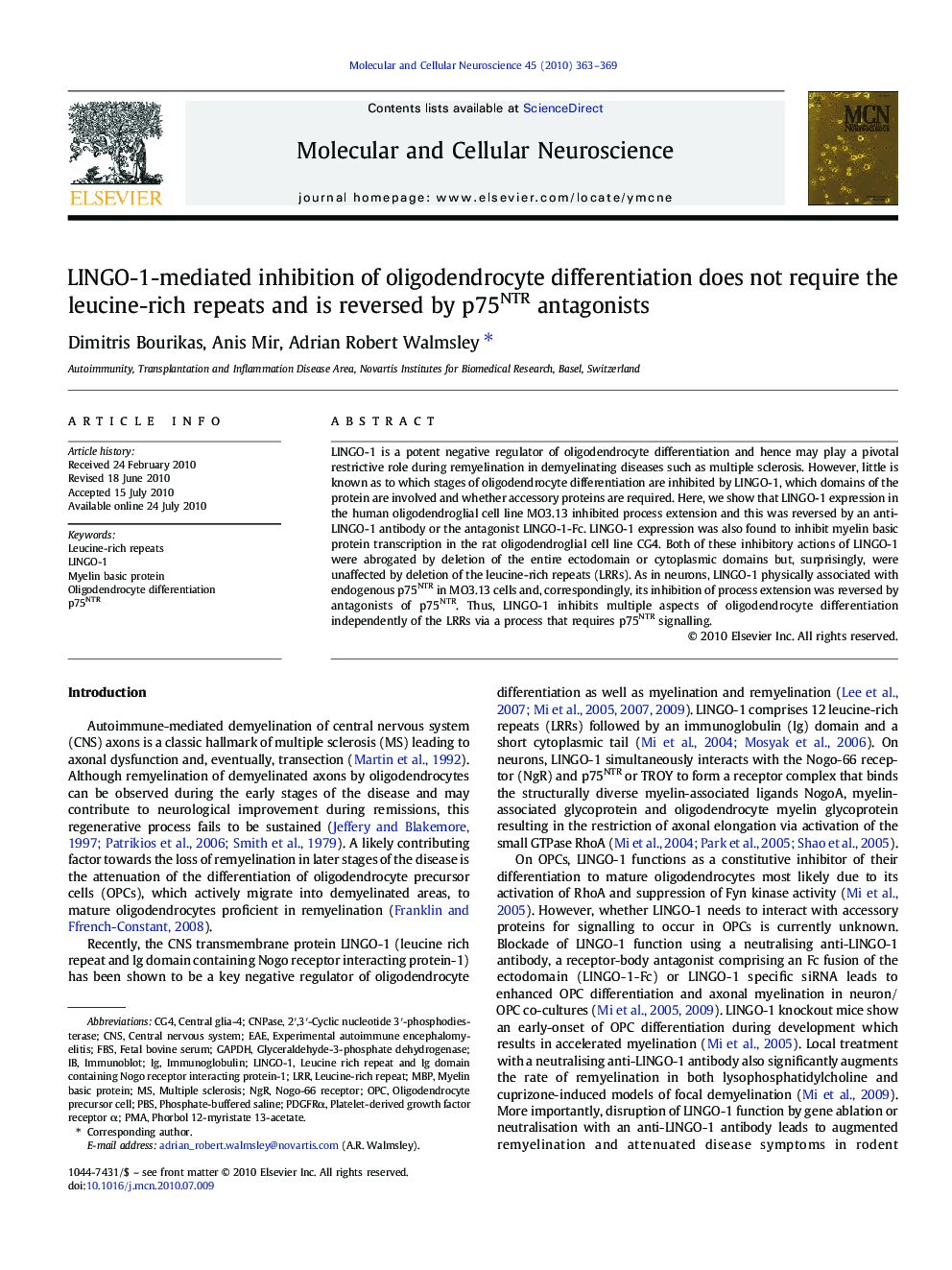| Article ID | Journal | Published Year | Pages | File Type |
|---|---|---|---|---|
| 10956608 | Molecular and Cellular Neuroscience | 2010 | 7 Pages |
Abstract
LINGO-1 is a potent negative regulator of oligodendrocyte differentiation and hence may play a pivotal restrictive role during remyelination in demyelinating diseases such as multiple sclerosis. However, little is known as to which stages of oligodendrocyte differentiation are inhibited by LINGO-1, which domains of the protein are involved and whether accessory proteins are required. Here, we show that LINGO-1 expression in the human oligodendroglial cell line MO3.13 inhibited process extension and this was reversed by an anti-LINGO-1 antibody or the antagonist LINGO-1-Fc. LINGO-1 expression was also found to inhibit myelin basic protein transcription in the rat oligodendroglial cell line CG4. Both of these inhibitory actions of LINGO-1 were abrogated by deletion of the entire ectodomain or cytoplasmic domains but, surprisingly, were unaffected by deletion of the leucine-rich repeats (LRRs). As in neurons, LINGO-1 physically associated with endogenous p75NTR in MO3.13 cells and, correspondingly, its inhibition of process extension was reversed by antagonists of p75NTR. Thus, LINGO-1 inhibits multiple aspects of oligodendrocyte differentiation independently of the LRRs via a process that requires p75NTR signalling.
Related Topics
Life Sciences
Biochemistry, Genetics and Molecular Biology
Cell Biology
Authors
Dimitris Bourikas, Anis Mir, Adrian Robert Walmsley,
